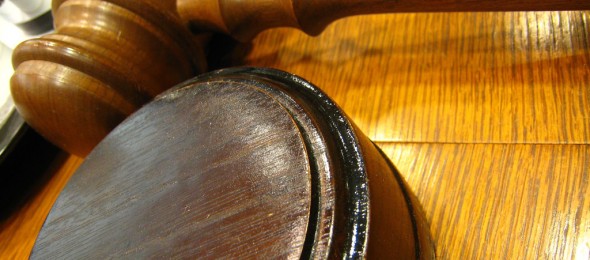Texas’ Fifth District Court of Appeals in Dallas has ruled that a trial court abused its discretion when it refused to allow a party to a lawsuit to engage in discovery over an arbitrator’s purported evident partiality. In Rodas v. La Madeleine of Texas, No. 05-14-00054-CV (Tex. App. – Dallas, April 10, 2015), a Texas worker, Rodas, filed a lawsuit against her employer, La Madeline of Texas, Inc., over the personal injuries she allegedly sustained while at work. At the time of the employee’s purported injury accident, La Madeline was not a Texas workers’ compensation insurance coverage subscriber.
In response to Rodas’s complaint, her employer filed a motion to compel arbitration with the 162nd District Court. After La Madeline’s motion was granted, the case was submitted to a neutral arbitrator pursuant to the terms of the parties’ arbitral agreement. Eight months later, the arbitrator issued an award in favor of the hurt woman’s employer.
A few months after the arbitrator issued his decision, Rodas sought to vacate the award due to the neutral’s purported evident partiality. According to the worker, the arbitrator demonstrated evident partiality when he failed to disclose that he served as the sole arbitrator for other disputes involving her employer’s counsel while her own case was pending. In addition, La Madeline filed a motion to confirm the arbitrator’s decision. Rodas next sought to conduct discovery regarding the neutral’s alleged partiality. Following numerous hearings, the trial court ultimately denied the worker’s discovery requests and confirmed the arbitration award.
On appeal to Texas’ Fifth District in Dallas, Rodas argued that the trial court abused its discretion when it denied her discovery request regarding the arbitrator’s possible evident partiality. First, the appellate court stated, “a trial court abuses its discretion if it denies discovery going to the heart of a party’s case or if that denial severely compromises a party’s ability to present a viable defense.” Next, the Dallas court said the parties agreed the Federal Arbitration Act applied to the case. After that, the Fifth District examined what constitutes evident partiality that may require vacating an arbitration award.
The appeals court said evident partiality occurs when a neutral arbitrator fails to disclose information that would reasonably give an objective observer the impression that he or she exhibited partiality. The court continued by stating, “an arbitrator’s failure to disclose that a party’s representative has previously appeared before him as a party representative in a different arbitration may also be sufficient evidence of evident partiality. See Alim v. KBR (Kellogg, Brown & Root)— Halliburton, 331 S.W.3d 178, 182 (Tex. App.-Dallas 2011, no pet.).”
Next, Texas’ Fifth District discussed when a party to a dispute is entitled to engage in discovery regarding an arbitrator’s purported evident partiality following arbitral proceedings. After examining relevant case law, the court said it was not required to decide whether a party must “make a threshold evidentiary showing of grounds to vacate an award before being permitted to take related discovery” based on the facts of the case. Instead, the court found:
Because discovery is permissible if it is reasonably calculated to lead to the discovery of admissible evidence, see Tex. R. Civ. P. 192.3(a), and Rodas’s requested discovery is directed at her evident partiality grounds for attempting to vacate the award, the proceedings described above support allowing her to conduct her requested discovery. Over the course of three hearings, attorneys for La Madeleine, for Gilbert, and for entities apparently related to Gilbert repeatedly admitted that Gilbert had failed to disclose one or two arbitrations involving La Madeleine’s law firm and that Gilbert accepted during the pendency of Rodas’s arbitration. Rodas was entitled to conduct reasonable discovery to flesh out all relevant undisclosed facts. See Karlseng I, 286 S.W.3d at 57-58.
The appellate court then turned to whether the unsworn statements made by La Madeline’s counsel were “sufficient evidence to support Rodas’s requests for discovery.” After finding they were not, the court added that Rodas was not required to request a continuance after the trial court refused to allow the worker to conduct discovery. The court said:
…the trial court denied Rodas any discovery on the evident-partiality issue. Since Rodas would not have been able to conduct discovery during a continuance anyway, requesting a continuance would have been pointless. On the facts of this case, Rodas was not required to request a continuance to preserve her argument that the trial court erred by denying her any opportunity to conduct discovery.
Finally, Texas’ Fifth District Court of Appeals held that the trial court abused its discretion when it denied the injured worker’s post-arbitration discovery request, reversed the lower court’s order confirming the arbitral award, and remanded the case.
In May, La Madeleine filed a petition for review with the Supreme Court of Texas. Please stay tuned to Disputing for future developments in this case!
Photo credit: bloomsberries / Foter / CC BY-ND













